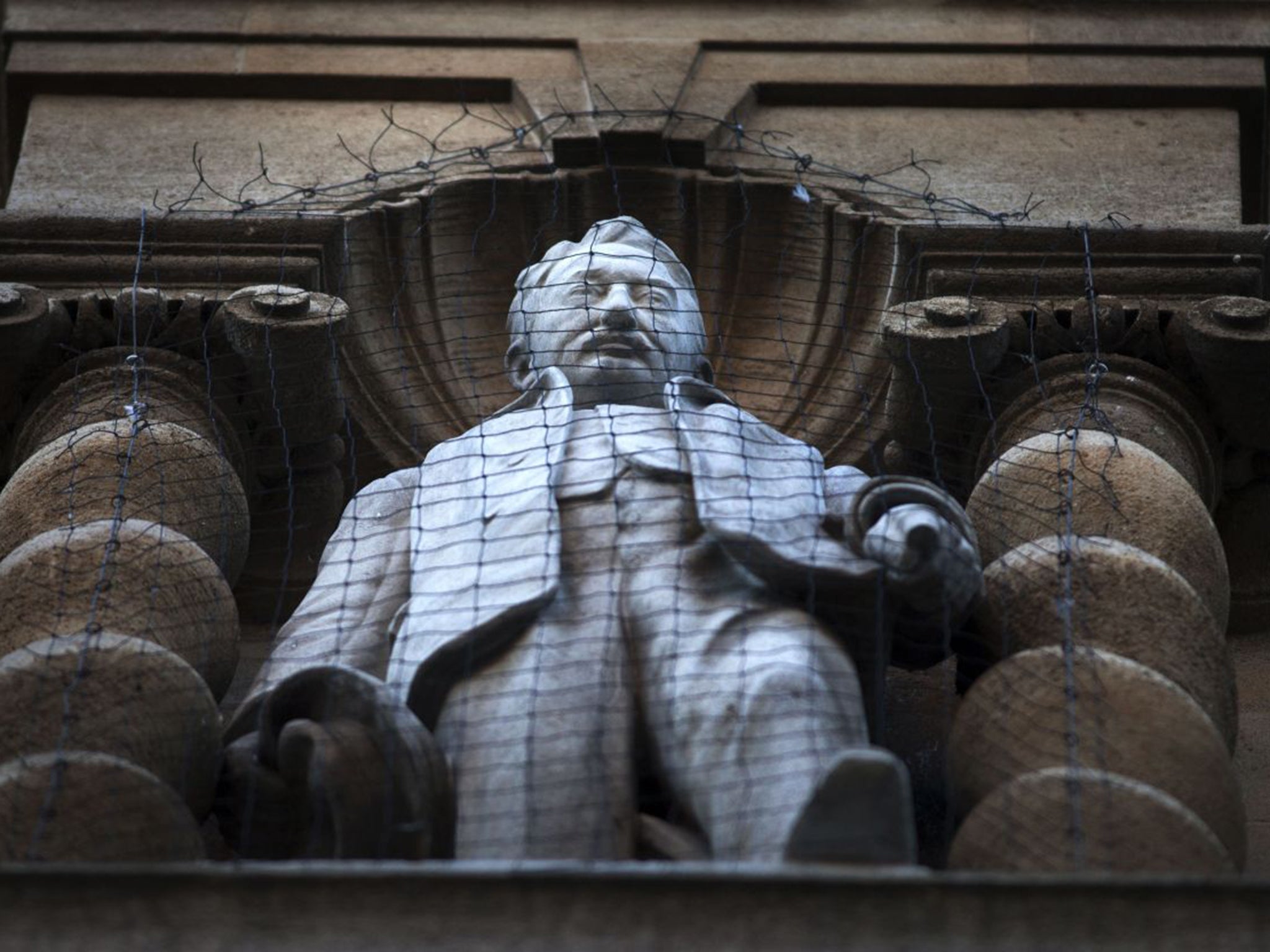UK statues which anti-racism protesters want to have taken down
Edward Colston, whose memorial has been thrown into and since retrieved from Bristol harbour, was far from alone in being celebrated with a monument
The toppling of a statue of 17th-century slave trader Edward Colston by Black Lives Matter protesters in Bristol has fuelled calls for other controversial monuments to be pulled down.
The Colston statue, which was pushed into Bristol harbour after being hauled down from its plinth by demonstrators on Sunday, has long been contentious in the city, where streets, landmarks, a concert hall and schools also bear the name of a wealthy merchant involved in the sale and deaths of thousands of African men, women and children.
Well-supported petitions had called for the memorial – erected in recognition of his philanthropy – to be removed, while a plaque highlighting his slave-trading activities was planned but never installed due to a dispute over the wording.
And on Tuesday evening, a statue of slave owner Robert Miligan in east London was removed by the local authority.
Similar debates have played out elsewhere in the UK.
A statue of Scouts founder Robert Baden-Powell was to be temporarily removed from its site on Poole’s seafront on Thursday over fears it would be targeted by anti-racism protesters.
Bournemouth, Christchurch and Poole Council said it wanted to “minimise the risk of any public disorder or anti-social behaviour that could arise were the statue to remain in situ” while views on Lord Baden-Powell and his legacy were discussed.
In a statement issued on Wednesday, council leader Vikki Slade said: “Whilst famed for the creation of the Scouts, we also recognise that there are some aspects of Robert Baden-Powell’s life that are considered less worthy of commemoration.
“Therefore, we are removing the statue so that we can properly involve all relevant communities and groups in discussions about its future, including whether a more educational presentation of his life in a different setting might be more appropriate.”
Lord Baden-Powell, a Boer War hero, was voted the 13th most influential person in the UK in the 20th century in a poll in 2007. However, critics say he held racist views and in 2010 declassified MI5 files revealed he was invited to meet Adolf Hitler after holding friendly talks about forming closer ties with the Hitler Youth.
Campaigners have called for Oxford University to take down a statue of 19th century British imperialist Cecil Rhodes, a white supremacist seen as an architect of apartheid.
The Rhodes Must Fall campaign led to the removal of a monument to the businessman at the University of Cape Town in 2015, but Oxford’s Oriel College opted not to follow suit the next year despite pressure from students.
The college, where Rhodes studied, is now facing renewed protests: more than 1,500 people have signed a petition set up following the toppling of Colston statue, and a demonstration was held in Oxford high street on Tuesday.

Hundreds have also backed calls to reconsider a statue of Robert Clive, the former mayor of Shrewsbury and first British governor of Bengal, in the Shropshire town’s main square.
Clive, a military officer and East India Company official, amassed a huge personal fortune by seizing control of a vast swathe of India and surrounding parts of Asia. He oversaw atrocities including famines caused by disastrous crop production policies, and has been described by historian William Dalrymple as an “unstable sociopath”.
Another petition gathering steam in the wake of the Bristol protest focuses on John Mitchel, a 19th-century Irish nationalist who went on to champion the slave trade in America. Mitchel has a street named after him and a statue in his honour in Newry, Northern Ireland. The petition, signed by more than 800 people as of Monday afternoon, asks: “Is a street named after a racist really the reflection we want shone on Newry in this modern, multicultural society?”
Other more prominent statues have previously been the subject of similar campaigns. A Grade II-listed bronze figure of Oliver Cromwell has stood outside the Houses of Parliament in Westminster since 1895 as a symbol of democracy. But Cromwell also oversaw military massacres in Ireland, and there have been calls from MPs for the statue to be removed.
Even Nelson’s column, one of Britain’s most famous landmarks, is not without its critics. The country’s most venerated naval hero “was what you would now call, without hesitation, a white supremacist”, said writer Afua Hirsch in a 2017 article.
Opponents of such direct action liken the removal of statues to erasing history. Some favour the installation of plaques putting the actions of those honoured in context.
But historian David Olusoga, interviewed on the BBC after Colston’s memorial was sent tumbling into Bristol harbour, said: “Statues aren’t the mechanism by which we understand history. We learn history through museums, through books, through television programmes. Statues are about adoration, about saying that this man was a great man and he did great things. That is not true; he was a slave trader and a murderer.”
Join our commenting forum
Join thought-provoking conversations, follow other Independent readers and see their replies
Comments
Bookmark popover
Removed from bookmarks